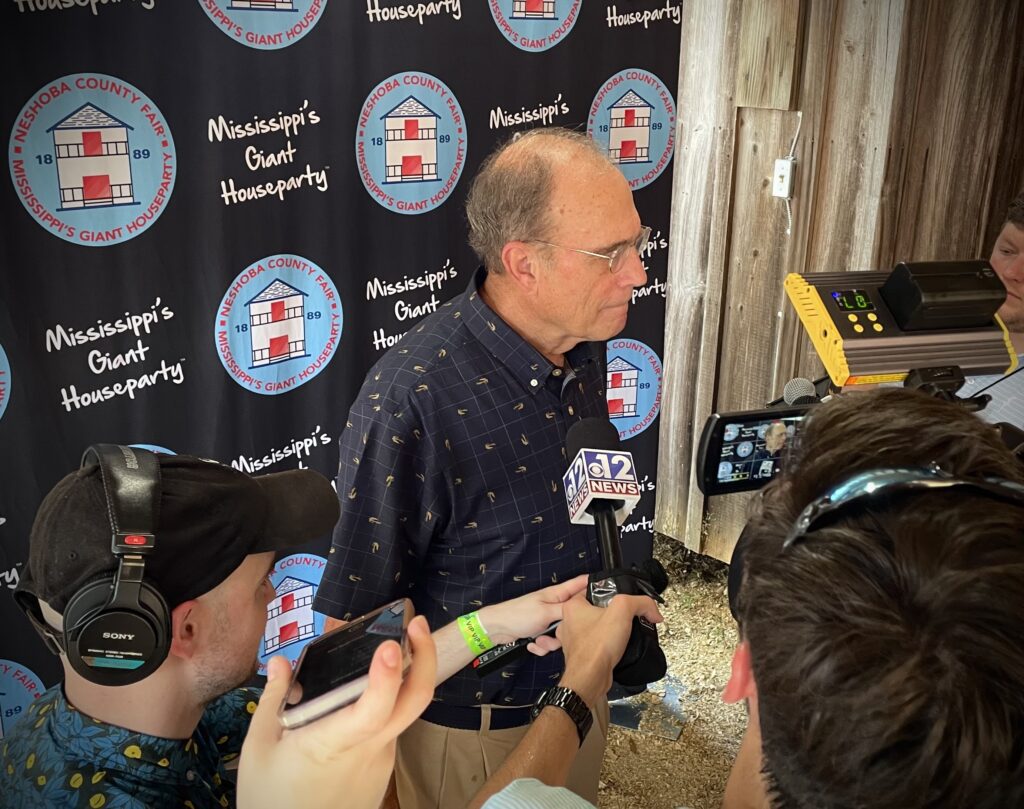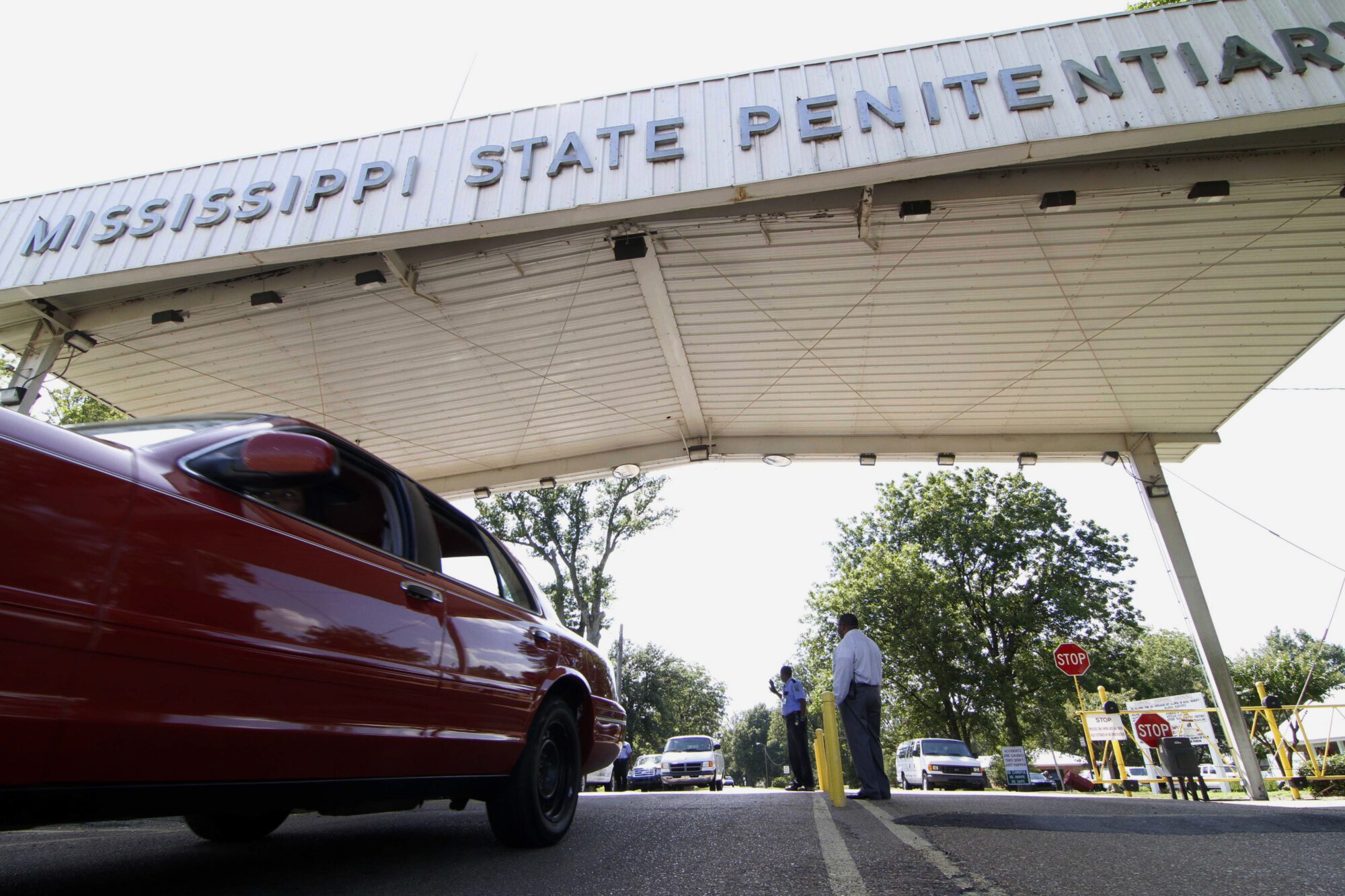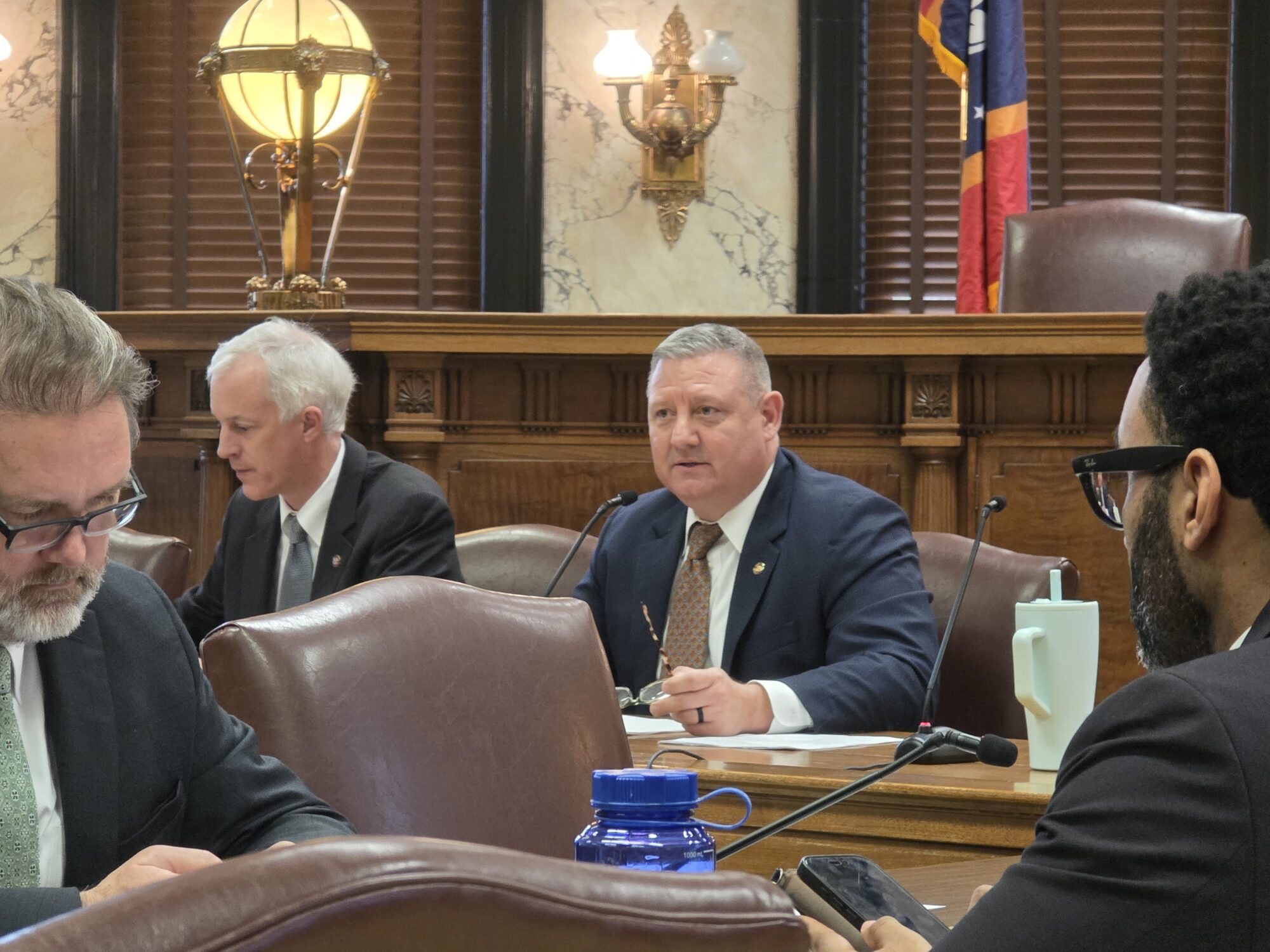
Lt. Governor Delbert Hosemann speaks at the 2025 Neshoba County Fair (Photo by Frank Corder)
- The Lt. Governor did not entertain speculation about his political future come 2027, choosing instead to focus his remarks at the Neshoba County Fair on his legislative agenda.
Lt. Governor Delbert Hosemann remained mum on Wednesday as to his plans to run for the state’s top elected office in 2027. Instead, he told those gathered under the Founders Square Pavilion at the Neshoba County Fair that a massive tax rebate for Mississippians is expected to be introduced in the Senate come January 2026.
During his speech at the fair, Hosemann said a proposed $315 million tax rebate would be based on Mississippians’ 2023 tax return. The rebate under consideration would be 15 percent across-the-board. He said if a taxpayer paid $1,000 in taxes, they would be eligible for a $150 refund from the state under the proposal.
Hosemann attributed the tax rebate plan to the state’s growing economy and lawmakers’ pledge to follow fiscally conservative policies. strategic investment and sound budgeting.
“That will help our economy,” Hosemann said, adding that Mississippi is in the best fiscal shape in its history. “So, it’s only fair to return the taxpayers’ money.”
This is not the first time Hosemann has suggested a tax rebate. In December 2022, he proposed up to a $500 rebate check for taxpayers when the state had a $270 million surplus. One recent development adding to his call for the plan now is that Mississippi has retired $1 billion in debt. Without going into detail, he said eliminating that much debt is also helping the state become an economic powerhouse.
“That’s something the media isn’t reporting,” he told the Neshoba crowd who braved the extreme heat.
Hosemann said that by retiring $1 billion in debt, the future of Mississippi is brighter for generations to come.
“This is important because my three grandchildren aren’t going to have to pay off my debt,” he said.

After his speech, Hosemann dismissed speculation about a 2027 gubernatorial run, choosing instead to refer back to his speech, calling his agenda “aggressive” and setting the Senate’s vision for the next session. While he was silent on a potential run for higher office, several people around him and the press gaggle were wearing Delbert campaign t-shirts.
“We’re committed to good, conservative government that works by investing in education, growing our workforce, supporting families, and streamlining state government to better serve you and reduce your taxes,” Hosemann said of his 2026 Senate agenda.
Education is an area that will continue to receive much attention, he said. Outlining several goals to improve the state’s education system, Hosemann pointed out that investing heavily in education saw the state jump from the bottom to 16th nationally.
Legislation expected from the Senate next year will include proposing another round of teacher pay raises to address the shortage in Mississippi, allow retired teachers to return to the classroom, and a statewide ban on cell phones during instructional time, which failed to gain traction in the 2025 session.
Hosemann admitted that despite all of Mississippi’s education successes, it is still failing in one area: truancy. The Senate will address chronic absenteeism, he said, which now stands at around 25 percent of students. Lawmakers look to boost pay for School Attendance Officers while placing them directly under local school districts’ authority.
“Those kids have no chance for an economic future,” Hosemann said, adding that parents should also be held responsible for their children being absent from school.
The Mississippi Miracle is not just education, but the economic improvements that the state has witnessed in recent years, he noted. However, the state could be a victim of its own success. The Lt. Governor said the Magnolia State does not have enough workers and must continue to focus on workforce development and labor participation.
He said the Senate will introduce legislation to boost labor force participation by the creation of a “Mississippi Reconnect Program” aimed at helping non-traditional students without an associate degree or certification return to school, earn a credential, and connect with high-skill, high-demand jobs tuition-free.










